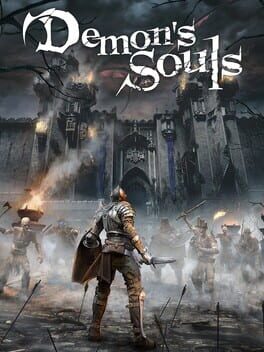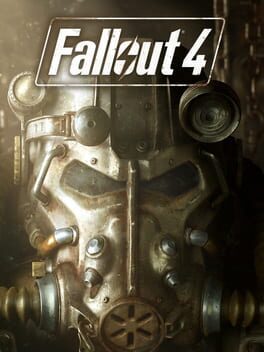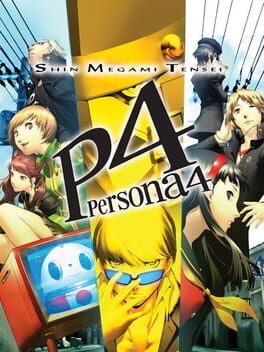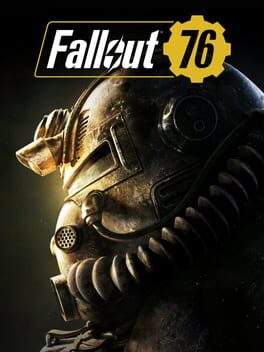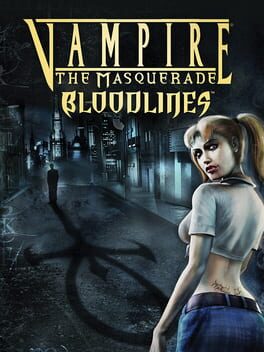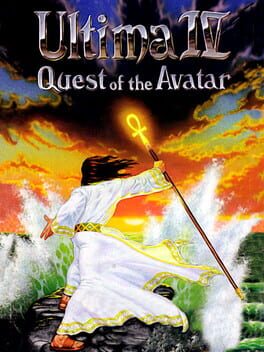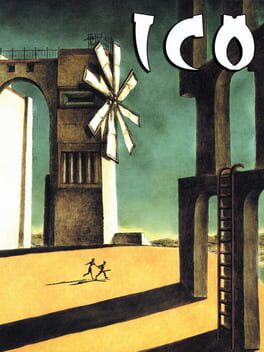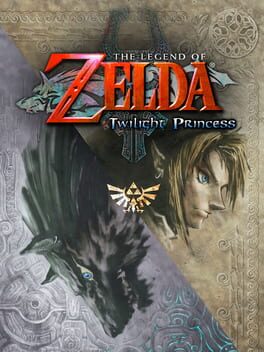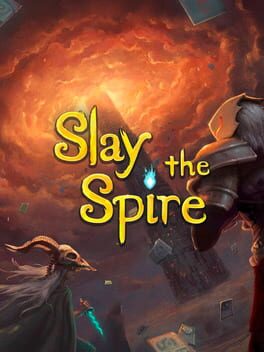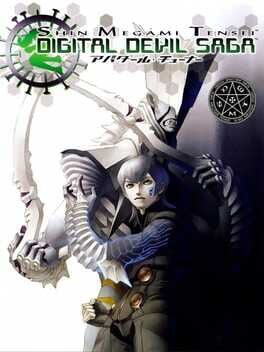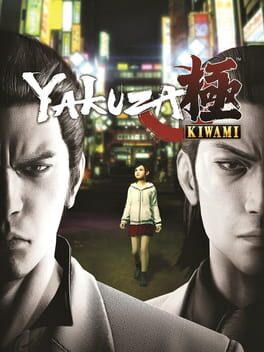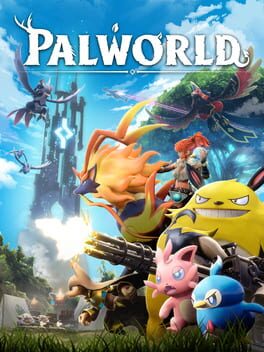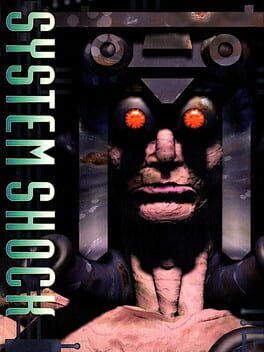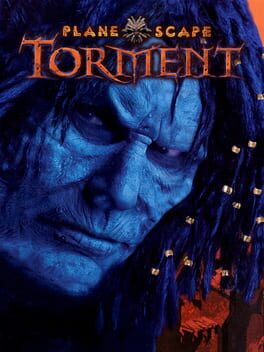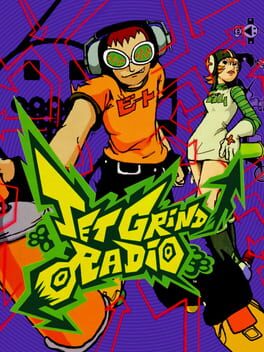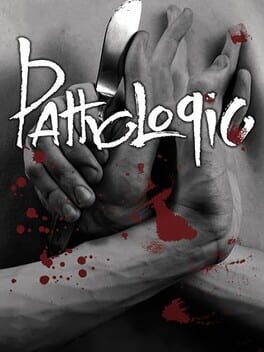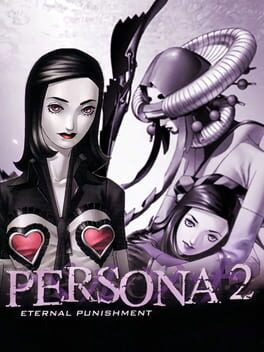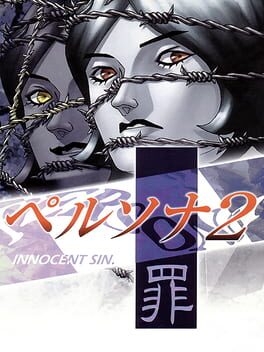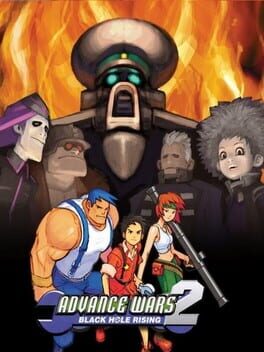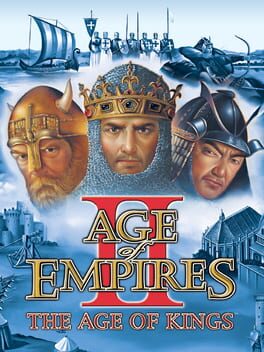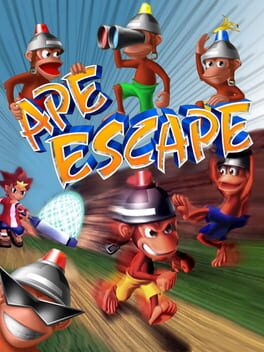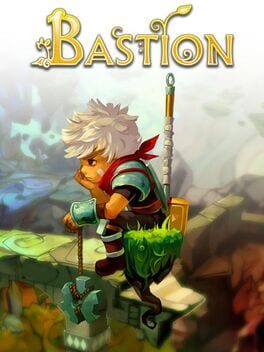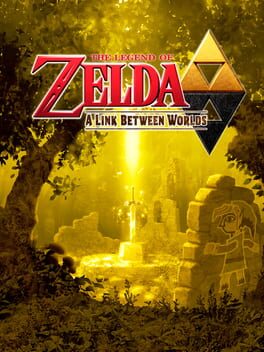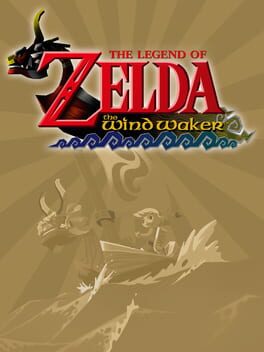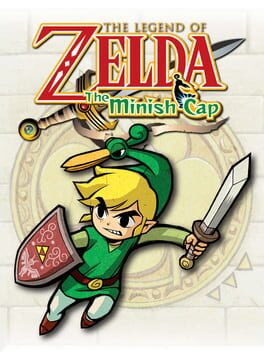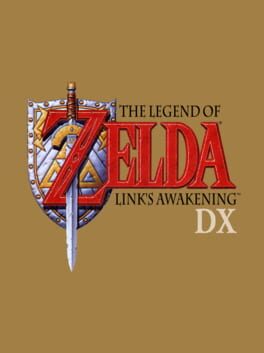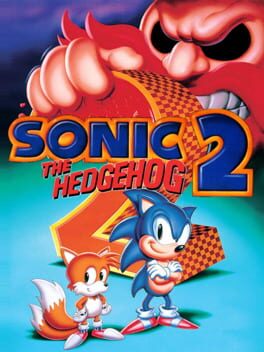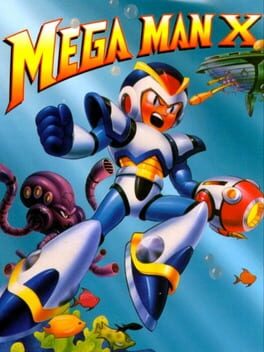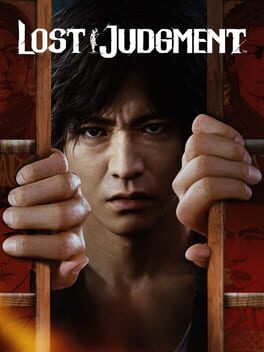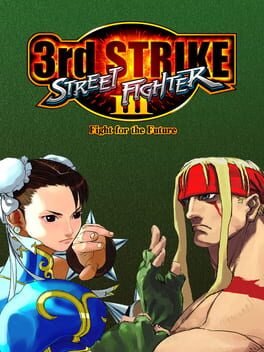200 reviews liked by SoulP
Hong Kong 97
1995
Hong Kong 97, objectively speaking, is a video game. There is a failure state, enemies, the ability to fire projectiles and move in eight directions, along with other things that make it a video game. None of its qualities are good.
You were magnificent, Hong Kong 97. I shall never forget you for as long as I live.
You were magnificent, Hong Kong 97. I shall never forget you for as long as I live.
Demon's Souls
2020
To say I wasn’t impressed with certain aspects of this would be pretty disingenuous; the graphical fidelity still holds up even four years later, and its uses of the DualSense are a bit novel. My problem is that I didn’t feel anything while playing this. Earlier this year I finally got around to playing the original Demon’s Souls and it was an unforgettable experience, a game that touched me in a way few manage to, and I think this not replicating that feeling even a little is very telling of all the sauce that’s missing. Ironically, they ended up taking the soul out of Demon’s Souls.
… I’m sure no one’s ever said that before, right?
… I’m sure no one’s ever said that before, right?
Fallout 4
2015
2015 was an insane year for video games, I need to stress that. Witcher, Metal Gear, Batman, and Fallout! So many big names, so many hits! How does this one stack up?
Not too well, I’m afraid.
The first time I played Fallout 4, I was impressed. Improved combat, fresh factions, a great score and atmosphere, and the added settlement system added up my playtime quickly. However, there’s a fly in the ointment - like many Bethesda titles, it’s fantastic on first contact and deteriorates with repeated playthroughs.
Fallout 4 is too streamlined, too smoothed over, and lacks the defining bumps or characteristics that made New Vegas and 3 stand out. It is the ultimate Bethesda game - most of the series’ RPG elements have been stripped clean, the main story is lacking, and the whole experience has been thoroughly idiot-proofed. The majority of quests are kill/fetch errands, and dialogue is relegated to four options. Honestly, it feels like the game plays itself half the time. Let me explain.
Nate will ask an NPC what’s up. The NPC will explain, Nate will respond in the attitude of choice, your companion will like/dislike it, and then you take the quest. Rarely is there ever a branching path or second option, it’s just a straight line. Characters seldom sound invested or urgent in dialogue, it’s just two people droning lines at each other. I’m not someone who hates the idea of voiced protagonists, but it requires a tremendous amount of talent to get it right. This goes doubly so for an RPG, where playtime will be in the tens or even hundreds. Nate and/or Nora don’t cut it for me, it’s just an additional sting for how bland the dialogue is. The one part of the dialogue system I do enjoy is how it interacts with your companion. Companion comments breathe a bit of life into the game, and make you feel like you’re not alone on the dull journey. The system built around them is a positive addition: learning their likes and dislikes over time is neat, and I think each one fills a niche that ensures that everyone will have at least a favorite or two by the time they finish the game. Nick was a big one in my first run, and Codsworth rocked in my second. It’s reminiscent of the first Dragon Age, though I think it’s done better there.
Like its forebears Oblivion and Fallout 3, the atmosphere and soundtrack is top-shelf. I don’t have any complaints about 4’s sound design, it’s remarkably solid all around. There’s a high level of detail in the presentation, with distinct sounds for every interaction, weapon, and general circumstance. I appreciate how there are distinct markers for loot containers: adhesives/tools for red boxes, drugs for blood-stained yellow ones, etc. There’s a language to scavenging that works here, and the settlement system purposefully connects to it. I played on the hard difficulty and had a fun time in combat, as it plays suitably different from normal. Using landmines and other traps is incentivized, as even your best weapons can have trouble putting down tougher foes.
Even in recognition of its few merits, the game’s skill system puts it all to waste. Gone are the days of allocating skill points and passing skill checks. In Fallout 4 you can be 20% better at something, what joy! Snark aside, its construction is a terrible pity and the reason why I chose to write this review in the first place. By removing skill-stacking, specializing, and instead focusing on perk points, the game attempts to foster a “one more turn” feeling, only to fail due to a crucial fact: the content in this game is slop. MMO-tier quests, stilted dialogue, awful story. What’s the point of chasing those perks if the only path to get there is so boring?
Imagine making your failsafe faction route composed entirely of radiant quests headed by the most annoying fucker in the whole game. That’s The Minutemen. The settlement system stapled to them doesn’t help in the quest department, as every quest is the same. Go here, kill that. The Brotherhood is almost different until they pull out Liberty Prime for the finale, which is a big disappointment. After hearing the game’s radio stations reuse songs from 3 on repeat, seeing the game rip plot points at the finish line felt like salt on a wound. That simile is an apt descriptor of 4 on the story side, as any attempt to draw into it deeper than surface level leads to unending pain.
It feels a bit mean to end my thoughts on Fallout 4 with the idea of “unending pain”, but really, it’s to be expected. 4 is the red-headed stepchild, perpetually damned with faint praise and loved for its DLC alone.
… And Nick Valentine. I think everyone loves Nick Valentine.
Not too well, I’m afraid.
The first time I played Fallout 4, I was impressed. Improved combat, fresh factions, a great score and atmosphere, and the added settlement system added up my playtime quickly. However, there’s a fly in the ointment - like many Bethesda titles, it’s fantastic on first contact and deteriorates with repeated playthroughs.
Fallout 4 is too streamlined, too smoothed over, and lacks the defining bumps or characteristics that made New Vegas and 3 stand out. It is the ultimate Bethesda game - most of the series’ RPG elements have been stripped clean, the main story is lacking, and the whole experience has been thoroughly idiot-proofed. The majority of quests are kill/fetch errands, and dialogue is relegated to four options. Honestly, it feels like the game plays itself half the time. Let me explain.
Nate will ask an NPC what’s up. The NPC will explain, Nate will respond in the attitude of choice, your companion will like/dislike it, and then you take the quest. Rarely is there ever a branching path or second option, it’s just a straight line. Characters seldom sound invested or urgent in dialogue, it’s just two people droning lines at each other. I’m not someone who hates the idea of voiced protagonists, but it requires a tremendous amount of talent to get it right. This goes doubly so for an RPG, where playtime will be in the tens or even hundreds. Nate and/or Nora don’t cut it for me, it’s just an additional sting for how bland the dialogue is. The one part of the dialogue system I do enjoy is how it interacts with your companion. Companion comments breathe a bit of life into the game, and make you feel like you’re not alone on the dull journey. The system built around them is a positive addition: learning their likes and dislikes over time is neat, and I think each one fills a niche that ensures that everyone will have at least a favorite or two by the time they finish the game. Nick was a big one in my first run, and Codsworth rocked in my second. It’s reminiscent of the first Dragon Age, though I think it’s done better there.
Like its forebears Oblivion and Fallout 3, the atmosphere and soundtrack is top-shelf. I don’t have any complaints about 4’s sound design, it’s remarkably solid all around. There’s a high level of detail in the presentation, with distinct sounds for every interaction, weapon, and general circumstance. I appreciate how there are distinct markers for loot containers: adhesives/tools for red boxes, drugs for blood-stained yellow ones, etc. There’s a language to scavenging that works here, and the settlement system purposefully connects to it. I played on the hard difficulty and had a fun time in combat, as it plays suitably different from normal. Using landmines and other traps is incentivized, as even your best weapons can have trouble putting down tougher foes.
Even in recognition of its few merits, the game’s skill system puts it all to waste. Gone are the days of allocating skill points and passing skill checks. In Fallout 4 you can be 20% better at something, what joy! Snark aside, its construction is a terrible pity and the reason why I chose to write this review in the first place. By removing skill-stacking, specializing, and instead focusing on perk points, the game attempts to foster a “one more turn” feeling, only to fail due to a crucial fact: the content in this game is slop. MMO-tier quests, stilted dialogue, awful story. What’s the point of chasing those perks if the only path to get there is so boring?
Imagine making your failsafe faction route composed entirely of radiant quests headed by the most annoying fucker in the whole game. That’s The Minutemen. The settlement system stapled to them doesn’t help in the quest department, as every quest is the same. Go here, kill that. The Brotherhood is almost different until they pull out Liberty Prime for the finale, which is a big disappointment. After hearing the game’s radio stations reuse songs from 3 on repeat, seeing the game rip plot points at the finish line felt like salt on a wound. That simile is an apt descriptor of 4 on the story side, as any attempt to draw into it deeper than surface level leads to unending pain.
It feels a bit mean to end my thoughts on Fallout 4 with the idea of “unending pain”, but really, it’s to be expected. 4 is the red-headed stepchild, perpetually damned with faint praise and loved for its DLC alone.
… And Nick Valentine. I think everyone loves Nick Valentine.
Mother 3
2006
Chapter One
A child ran off from their village, filled with rage. A petty kind of anger; one that the child would have all but forgotten about the next time you saw them. This next time would never come, though. The child disappeared and in their place stood a Destroyer.
Chapter Two
The village seemed different. Strange new people kept showing up, with pig shaped masks covering their eyes. On the surface, they went about their business and chatted like any other villager but the more mind you paid them, the more their words rang hollow. Their thoughts and jokes seemed inorganic; mass produced even. As these Pigmasks gathered in the village, the original people there felt alienated. An old man, once known for his insights and his sharp wit would get angrier and angrier, lashing out at those around him and eventually leaving. More villagers would follow suit, some of them against their will, as this community they saw as a safe haven to share things they couldn’t share anywhere else slowly but surely became part of that “anywhere else.”
Were these Pigmasks to blame for everything? Or was it merely a case of things that always infested the community finally bubbling up to the surface? And what of the Destroyer, a one-time villager, now hailed as the champion of the Pigmasks?
Chapter Three
A monkey walked through a forest with boxes on their back; head and torso fighting a fierce battle to not fall and hit the ground. This grueling process eventually became routine and the monkey’s body eventually went on autopilot. They had all this time to think about if they’ll ever move past this task and if they’ll ever have a purpose.
Did the Destroyer have the same thoughts in this same forest?
Chapter Four
Another village child was not unlike the one who would become the Destroyer. In fact, you could say that these two village children were a single entity; two sides of the same coin. The Destroyer was the head of this coin, facing up and always the topic of conversation from those who saw this “face.” The tail, stuck to the ground, reveled in the attention the head received. They took glee in seeing friends talk about the Destroyer without any clue of its relation to the one standing near them. They searched for other villagers’ words on this mysterious Destroyer and snuck into houses to see them: the praise, the insults, the natural discussions surrounding this new “symbol” of the village.
This was not healthy for the village child. But still, could you blame them? This sensation of feeling important, even if that importance was just a niche micro-celeb in a small village, was much more comforting than the cold reality of meaning nothing in the grand scheme of things.
Chapter Five
A Pigmask working in a tower was a big fan of a rock band. They were utterly awestruck at the sight of that band’s merchandise on the man that entered the tower earlier that day and could not talk about anything other than that band: expressing their love of the band’s work, idolizing the ones behind it as supposedly great people, and elevating the band to some moral paragon because of milquetoast political opinions in its songs.
The Destroyer was in the tower too, watching this Pigmask’s conversation with mere apathy if not active contempt.
Chapter Six
Sometimes, ghosts of the past appear as reminders of what will never come back.
Chapter Seven
The Destroyer pulled a needle out of the ground and felt nothing. They pulled quite a bit of these needles before but something was different this time. The act was now done only out of some perceived obligation; to the Pigmasks and villagers cheering on or to the fake images of hearts that result from the act. It was time for the last needle to be pulled.
Chapter Eight
The Destroyer laid on the ground motionless as its tail pulled the final needle on its behalf. Its supposed stardom was crushed into not even half a star.
It’s over.
A child ran off from their village, filled with rage. A petty kind of anger; one that the child would have all but forgotten about the next time you saw them. This next time would never come, though. The child disappeared and in their place stood a Destroyer.
Chapter Two
The village seemed different. Strange new people kept showing up, with pig shaped masks covering their eyes. On the surface, they went about their business and chatted like any other villager but the more mind you paid them, the more their words rang hollow. Their thoughts and jokes seemed inorganic; mass produced even. As these Pigmasks gathered in the village, the original people there felt alienated. An old man, once known for his insights and his sharp wit would get angrier and angrier, lashing out at those around him and eventually leaving. More villagers would follow suit, some of them against their will, as this community they saw as a safe haven to share things they couldn’t share anywhere else slowly but surely became part of that “anywhere else.”
Were these Pigmasks to blame for everything? Or was it merely a case of things that always infested the community finally bubbling up to the surface? And what of the Destroyer, a one-time villager, now hailed as the champion of the Pigmasks?
Chapter Three
A monkey walked through a forest with boxes on their back; head and torso fighting a fierce battle to not fall and hit the ground. This grueling process eventually became routine and the monkey’s body eventually went on autopilot. They had all this time to think about if they’ll ever move past this task and if they’ll ever have a purpose.
Did the Destroyer have the same thoughts in this same forest?
Chapter Four
Another village child was not unlike the one who would become the Destroyer. In fact, you could say that these two village children were a single entity; two sides of the same coin. The Destroyer was the head of this coin, facing up and always the topic of conversation from those who saw this “face.” The tail, stuck to the ground, reveled in the attention the head received. They took glee in seeing friends talk about the Destroyer without any clue of its relation to the one standing near them. They searched for other villagers’ words on this mysterious Destroyer and snuck into houses to see them: the praise, the insults, the natural discussions surrounding this new “symbol” of the village.
This was not healthy for the village child. But still, could you blame them? This sensation of feeling important, even if that importance was just a niche micro-celeb in a small village, was much more comforting than the cold reality of meaning nothing in the grand scheme of things.
Chapter Five
A Pigmask working in a tower was a big fan of a rock band. They were utterly awestruck at the sight of that band’s merchandise on the man that entered the tower earlier that day and could not talk about anything other than that band: expressing their love of the band’s work, idolizing the ones behind it as supposedly great people, and elevating the band to some moral paragon because of milquetoast political opinions in its songs.
The Destroyer was in the tower too, watching this Pigmask’s conversation with mere apathy if not active contempt.
Chapter Six
Sometimes, ghosts of the past appear as reminders of what will never come back.
Chapter Seven
The Destroyer pulled a needle out of the ground and felt nothing. They pulled quite a bit of these needles before but something was different this time. The act was now done only out of some perceived obligation; to the Pigmasks and villagers cheering on or to the fake images of hearts that result from the act. It was time for the last needle to be pulled.
Chapter Eight
The Destroyer laid on the ground motionless as its tail pulled the final needle on its behalf. Its supposed stardom was crushed into not even half a star.
It’s over.
Persona 4
2008
Hi-Fi Rush
2023
Hi-Fi Rush is incredible. I'm here to mourn Tango's passing, and to tell a story.
I graduated from high school in 2010, got into my second choice college, and lasted exactly 1 semester before getting thrown out. Long story, it was only partially my fault. Point is, coming back home after that was weird. Working full time, doing community college, making and losing friends, meeting the woman I'd eventually marry, I was busy. Busy meant a lot of driving. Driving meant listening to a lot of music. Music meant listening to the local indie station, who, among many other bands, started playing a little Welsh rock group called The Joy Formidable. Of everything they gave airtime, it was their work that resonated with me the most.
As I was playing through Hi-Fi Rush for the first time over a couple sitdowns I joked with friends that the game felt personalized for me and me alone. Rhythm character action cel-shaded comedy? You couldn't concoct a more Demetri-ass concept without also serving me a hot gyro. I enjoyed every single decision made, particularly in the audio department. So imagine my reaction when I get to the surprisingly impactful climax and its gorgeous, massive construction zone, only for one of the most emotionally charged songs of my entire life to start thumping in my ears.
There's not an ounce of embarrassment in my heart when I tell you that I teared up hearing Whirring in the final level of Hi-Fi Rush, and I wouldn't have dared pause to wipe them away. I cannot think of another video game level that made me feel so much so strongly so quickly. I don't know anybody at Tango Gameworks, but I feel like I do. Or should. At the very least I want to thank them personally.
Hi-Fi Rush may not be perfect for everyone, but it is for me. Together we're unstoppable.
I graduated from high school in 2010, got into my second choice college, and lasted exactly 1 semester before getting thrown out. Long story, it was only partially my fault. Point is, coming back home after that was weird. Working full time, doing community college, making and losing friends, meeting the woman I'd eventually marry, I was busy. Busy meant a lot of driving. Driving meant listening to a lot of music. Music meant listening to the local indie station, who, among many other bands, started playing a little Welsh rock group called The Joy Formidable. Of everything they gave airtime, it was their work that resonated with me the most.
As I was playing through Hi-Fi Rush for the first time over a couple sitdowns I joked with friends that the game felt personalized for me and me alone. Rhythm character action cel-shaded comedy? You couldn't concoct a more Demetri-ass concept without also serving me a hot gyro. I enjoyed every single decision made, particularly in the audio department. So imagine my reaction when I get to the surprisingly impactful climax and its gorgeous, massive construction zone, only for one of the most emotionally charged songs of my entire life to start thumping in my ears.
There's not an ounce of embarrassment in my heart when I tell you that I teared up hearing Whirring in the final level of Hi-Fi Rush, and I wouldn't have dared pause to wipe them away. I cannot think of another video game level that made me feel so much so strongly so quickly. I don't know anybody at Tango Gameworks, but I feel like I do. Or should. At the very least I want to thank them personally.
Hi-Fi Rush may not be perfect for everyone, but it is for me. Together we're unstoppable.
Hi-Fi Rush
2023
The first part is my review of the game, the second is my rant over Xbox.
Review: WOOOAAA-OOOOOOH YEEEEEAAA-AAAAAAH
Xbox fans love to defend Microsoft buying out studios because Sony does it too, but at least when Sony does it, they don't IMMEDIATELY shut down an entire 14 year old studio a year after they put out their first exclusive for the company, which also happens to be the best game on their platform in DECADES just to line the pockets of their executives.
Japan Studio's closure was the worst thing Sony ever did. But in the bleakest of perspectives, it makes sense as their games were never financially profitable, and were bleeding money for over a decade, especially after the development hell The Last Guardian went through, only to sell a little over a million copies.
Hi-Fi Rush was a much smaller game that reached universal acclaim with 3.5 million sold copies in just a little over a year. That is insanely good for a mid-budget game. Microsoft had zero reason to shut down the studio to prop up Bethesda with their most mediocre game yet that even IGN gave a 7/10, along with an extraordinarily generic Indiana Jones game and a generic Marvel tie-in game.
Not even to mention that Microsoft is a TRILLION($3,000,000,000,000+) dollar company that has zero reason to purge studios that make successful games.
Hi-Fi Rush was one of the most unique games we've gotten in years and now it will never receive a follow-up thanks to corporate greed and incompetency from the worst company in the entire gaming industry. Far worse than EA or Ubisoft.
Review: WOOOAAA-OOOOOOH YEEEEEAAA-AAAAAAH
Xbox fans love to defend Microsoft buying out studios because Sony does it too, but at least when Sony does it, they don't IMMEDIATELY shut down an entire 14 year old studio a year after they put out their first exclusive for the company, which also happens to be the best game on their platform in DECADES just to line the pockets of their executives.
Japan Studio's closure was the worst thing Sony ever did. But in the bleakest of perspectives, it makes sense as their games were never financially profitable, and were bleeding money for over a decade, especially after the development hell The Last Guardian went through, only to sell a little over a million copies.
Hi-Fi Rush was a much smaller game that reached universal acclaim with 3.5 million sold copies in just a little over a year. That is insanely good for a mid-budget game. Microsoft had zero reason to shut down the studio to prop up Bethesda with their most mediocre game yet that even IGN gave a 7/10, along with an extraordinarily generic Indiana Jones game and a generic Marvel tie-in game.
Not even to mention that Microsoft is a TRILLION($3,000,000,000,000+) dollar company that has zero reason to purge studios that make successful games.
Hi-Fi Rush was one of the most unique games we've gotten in years and now it will never receive a follow-up thanks to corporate greed and incompetency from the worst company in the entire gaming industry. Far worse than EA or Ubisoft.
Hi-Fi Rush
2023
Fallout 76
2018
Really couldn’t force myself through it. Fallout 76 borrows a lot of the stuff I didn’t like about Fallout 4 and on top of that adds boring multiplayer game padding, and it’s not like the gunplay is at least enough to power through this. I can at least appreciate them trying new stuff like some of the wildlife in Appalachia and mutations, but those are about the only positives I took away from this. Writing is incredibly boring, the engine bogs down the experience, and there’s just not a ton of engaging content, if at all (in the base game, don’t know about the expansions). Here’s hoping the next Fallout game won’t be this much of a slog.
Dragon's Dogma II
2024
Lo primero de todo: no es un juego para todo el mundo.
Es un juego que te pide paciencia y que te sumerjas, como harías en cualquier juego de rol. Que interpretes el mundo y decidas, y asumas tus decisiones. Si pretendes rushearlo, vas a perderte la esencia del mismo, ya que incluso la historia principal acaba reaccionando a tus decisiones en otros lugares. Es por ello por lo que otro de sus puntos fuertes es la exploración y el combate, siendo el primero una auténtica pasada y el segundo excelente aunque tampoco será para todo el mundo por falta de bloquear objetivo y similares. Que no se me malinterprete, el combate está muy guay y me encanta, he jugado todas las vocaciones y visto sus pros y sus contras, pero no esperéis un Monster Hunter porque no lo es; el juego pretende que de verdad busques tener un equipo equilibrado y que, si eres un ladrón, con tus daguitas, lo tengas difícil contra objetivos aéreos. Y es que ahí es donde brilla, en asumir tu papel y dejar que tus aliados rellenen tus carencias. Ahí es donde me cuesta entender que la gente se queje de la mala IA que tienen, ya que yo al menos no he tenido ningún problema.
Y es que es tan importante darle importancia al mundo, al viaje con tus compañeros, a las secundarias con múltiples finales y de todos los tipos con, algunas de ellas, soluciones que jamás te esperarías, donde destaca este juego. Todo sea dicho, su historia, especialmente en los compases finales del juego, es maravillosa; pero unas horas de buena historia no compensa una trama entera ni hace que pueda decir que su narrativa esté explicada de forma impecable, no. Capcom parece tener un problema contando buenas historias con formas de contarlas a medias y por esa parte es una lástima; hay juegos donde es importante, pero en un juego como este, al menos a mi, no tanto. Y es que ahí es donde algunos notarán que es un mal juego, al no haberse perdido en el mundo encontrará un juego incompleto, mientras que otros, como yo, se habrán perdido por el mundo tan vivo que tiene y se habrá encontrado una auténtica joya.
Las clases con variadas y muy interesantes, las builds pudiendo ponerte diferentes técnicas, variedad de armas, pasivas que puedes intercambiar entre clases... También es algo que se refuerza con la exploración y contactando con el mundo, ya que aparte de lo evidente de ir subiendo de nivel y sacando ataques nuevos, hay maestros de vocación que te permiten conseguir técnicas definitivas de cada clase. Aunque a la gente que quiera ir más al grano puede ser un impedimento por no saber dónde buscar.
El resumen es que no es para todo el mundo, como he contado al comienzo. ¿Para mi? Para mi es un soplo de aire fresco en una industria de refritos de mundos abiertos genéricos llenos de simbolitos en el mapa y sistemas repetidos. Habrá quien diga que este juego tiene sistemas de juegos más antiguos, y dice bien, ya que bebe mucho de Dragon's Dogma 1. Pero... Eso no tiene por qué ser malo, si te entretiene y está bien hecho. Al menos, para mí, no lo es. Tengo muchas ganas de volver a jugar, por lo que espero con muchas ganas ya que saquen alguna expansión. Definitivamente, el dragón me ha robado el corazón.
Es un juego que te pide paciencia y que te sumerjas, como harías en cualquier juego de rol. Que interpretes el mundo y decidas, y asumas tus decisiones. Si pretendes rushearlo, vas a perderte la esencia del mismo, ya que incluso la historia principal acaba reaccionando a tus decisiones en otros lugares. Es por ello por lo que otro de sus puntos fuertes es la exploración y el combate, siendo el primero una auténtica pasada y el segundo excelente aunque tampoco será para todo el mundo por falta de bloquear objetivo y similares. Que no se me malinterprete, el combate está muy guay y me encanta, he jugado todas las vocaciones y visto sus pros y sus contras, pero no esperéis un Monster Hunter porque no lo es; el juego pretende que de verdad busques tener un equipo equilibrado y que, si eres un ladrón, con tus daguitas, lo tengas difícil contra objetivos aéreos. Y es que ahí es donde brilla, en asumir tu papel y dejar que tus aliados rellenen tus carencias. Ahí es donde me cuesta entender que la gente se queje de la mala IA que tienen, ya que yo al menos no he tenido ningún problema.
Y es que es tan importante darle importancia al mundo, al viaje con tus compañeros, a las secundarias con múltiples finales y de todos los tipos con, algunas de ellas, soluciones que jamás te esperarías, donde destaca este juego. Todo sea dicho, su historia, especialmente en los compases finales del juego, es maravillosa; pero unas horas de buena historia no compensa una trama entera ni hace que pueda decir que su narrativa esté explicada de forma impecable, no. Capcom parece tener un problema contando buenas historias con formas de contarlas a medias y por esa parte es una lástima; hay juegos donde es importante, pero en un juego como este, al menos a mi, no tanto. Y es que ahí es donde algunos notarán que es un mal juego, al no haberse perdido en el mundo encontrará un juego incompleto, mientras que otros, como yo, se habrán perdido por el mundo tan vivo que tiene y se habrá encontrado una auténtica joya.
Las clases con variadas y muy interesantes, las builds pudiendo ponerte diferentes técnicas, variedad de armas, pasivas que puedes intercambiar entre clases... También es algo que se refuerza con la exploración y contactando con el mundo, ya que aparte de lo evidente de ir subiendo de nivel y sacando ataques nuevos, hay maestros de vocación que te permiten conseguir técnicas definitivas de cada clase. Aunque a la gente que quiera ir más al grano puede ser un impedimento por no saber dónde buscar.
El resumen es que no es para todo el mundo, como he contado al comienzo. ¿Para mi? Para mi es un soplo de aire fresco en una industria de refritos de mundos abiertos genéricos llenos de simbolitos en el mapa y sistemas repetidos. Habrá quien diga que este juego tiene sistemas de juegos más antiguos, y dice bien, ya que bebe mucho de Dragon's Dogma 1. Pero... Eso no tiene por qué ser malo, si te entretiene y está bien hecho. Al menos, para mí, no lo es. Tengo muchas ganas de volver a jugar, por lo que espero con muchas ganas ya que saquen alguna expansión. Definitivamente, el dragón me ha robado el corazón.
12 lists liked by SoulP
by Wollom |
27 Games
by hotpoppah |
15 Games
by wheatie |
12 Games
by videogameronde |
18 Games
by videogameronde |
100 Games
by videogameronde |
16 Games
by videogameronde |
33 Games
by videogameronde |
41 Games

